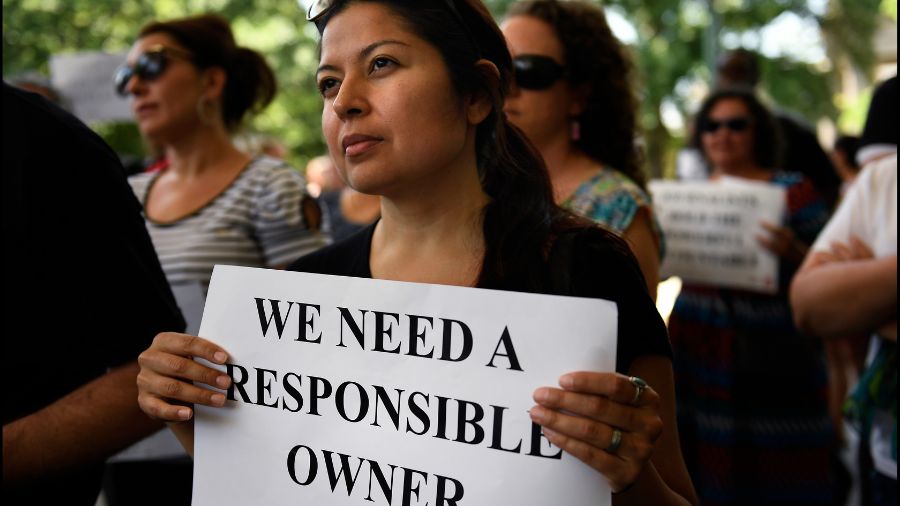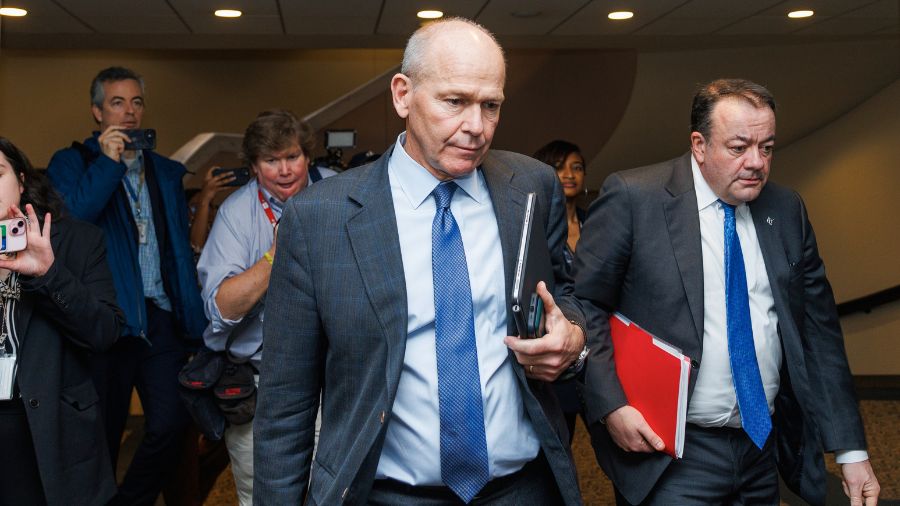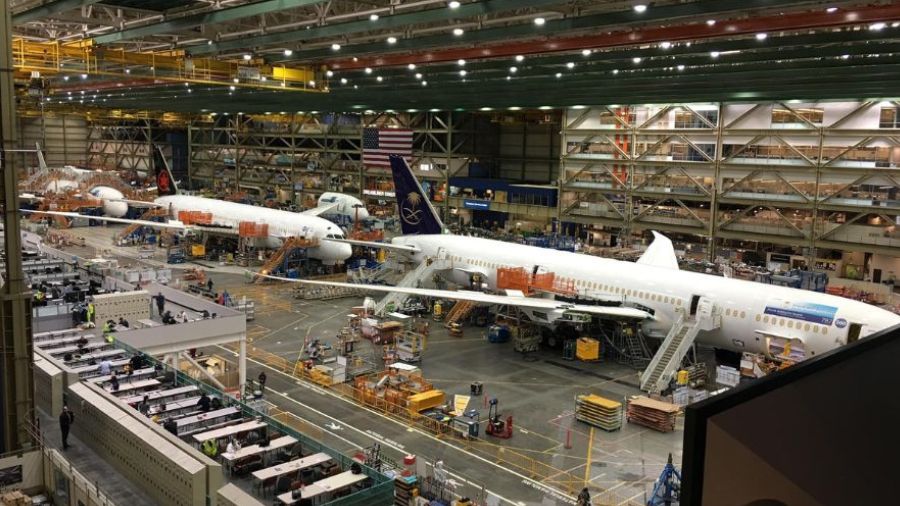Seattle’s working class is ‘running out of solutions’
Jul 15, 2018, 1:02 AM | Updated: 4:04 pm

Large spheres take shape in front of an existing Amazon building, behind, as new construction continues across the street in Seattle. (AP Photo/Elaine Thompson)
(AP Photo/Elaine Thompson)
When it comes to debating Seattle’s homelessness and housing crises, the sides are pretty well known. You have the NIMBY perspective: We’re on board with any solution, so long as my property taxes don’t go up and nothing changes my single-family home neighborhood. And there’s the YIMBY perspective (Yes In My Backyard): Build up, build out, tiny homes, backyard cottages — do anything we can to rezone all of Seattle and create a glut of housing that will bring costs down for everyone.
RELATED: NIMBY, YIMBY, or just plain Seattle classism
At one end you have people like Roger Valdez asking for more development. And on the other you have journalist, homeless advocate, and activist Dae Shik Kim Hawkins arguing for more affordable housing, but also, that not all development is good.
Hawkins promotes a perspective not often heard — or perhaps we’re not listening to it – focusing on neighborhoods in Rainier and South Seattle. These are the historically black and brown areas of the city that have been recently walloped by gentrification. This community has seen condos rocket up around them, and their neighbors displaced.
“The problem is getting worse, and a lot of the residents in the city are faced with the reality that their home is not their home, so a lot of them are moving further and further south,” Hawkins told KIRO Radio’s Dave Ross. “…You see these developments pop up on the south end over and over again.”
Those developments are only good if they have affordable housing, Hawkins said. But when Seattle’s neighborhoods to the south get more housing, those residents often can’t afford to live there.
“It is not equitable right now, the type of development that is happening around our city,” Hawkins said. “The south end is suffering; those families are being pushed out at a rapid rate, versus the north end.”
Hear Dave’s full interview with Hawkins here.
North and south Seattle
Seattle’s single-family zoned neighborhoods in the north have been fighting new development and can afford to. Meanwhile, the cheaper properties in south Seattle are are slated for more construction. And Seattle continues to get more expensive for everybody.
Seattle has tried throwing more money at the homelessness and affordability problems. The city has been increasing shelter beds. The recent head tax proved controversial. It was slated to raise money for affordable housing by taxing the largest companies contributing to the affordability issue. But it was passed and repealed within a month amid a contentious debate over how the wealthiest in town should help toward solutions.
“They can create change using their money,” Hawkins said. “I agree with people saying that $40 million (from the head tax) wasn’t a lot and it wasn’t going to make a huge dent in the affordable housing crisis … But the fact is that was a principle battle. That was saying to these billionaires, to these upper 1 percent of Seattleites, ‘We are going to hold you accountable, and we need you to create change with the resources you are taking out of the community’ … we are unwilling to hold our billionaires accountable in that way.”
Running out of solutions
New development faces push back. Few can afford what new housing is built. And solutions like the head tax divide the city. What’s left?
“As an organizer for affordable housing, as an organizer for the lower working class, we are running out of solutions,” Hawkins said. “We are not sure what to do. And we know, now, how important it is to have six council members who are going to fight for your issues.”
RELATED: If you can’t afford Seattle, why don’t you just move?
“There was one (tiny home village proposed) down in the Central District and you saw how that town hall went. Not good,” Hawkins said. “So we try to put out some solutions, and what do we got? … We must recognize that it is the culture we have built in this city. This xenophobic mentality of ‘We want nothing other than what we are comfortable with.'”
Hawkins argues Seattle needs to “acknowledge that our city does not want to invest, at least currently, in affordable housing.”
“So we don’t want to tax our big businesses, we don’t want to stop development, we don’t want to put a moratorium on affordable housing within these policies,” he said. “So what do we got?”
Hawkins’ recent article on Seattle’s homeless crises, “An App for Ejecting the Homeless,” was published in The Atlantic.













